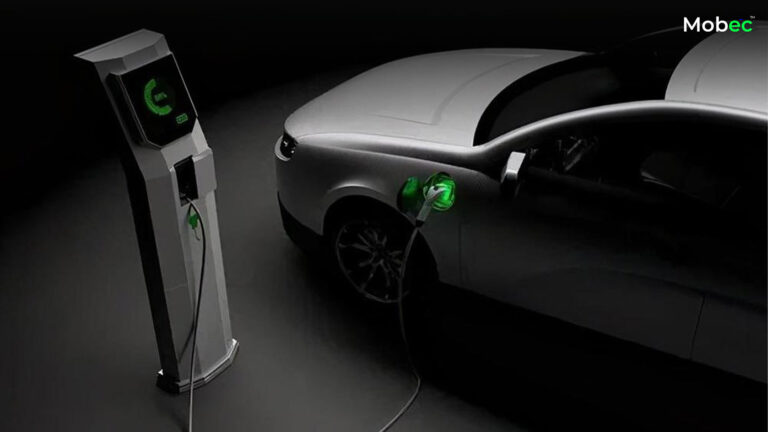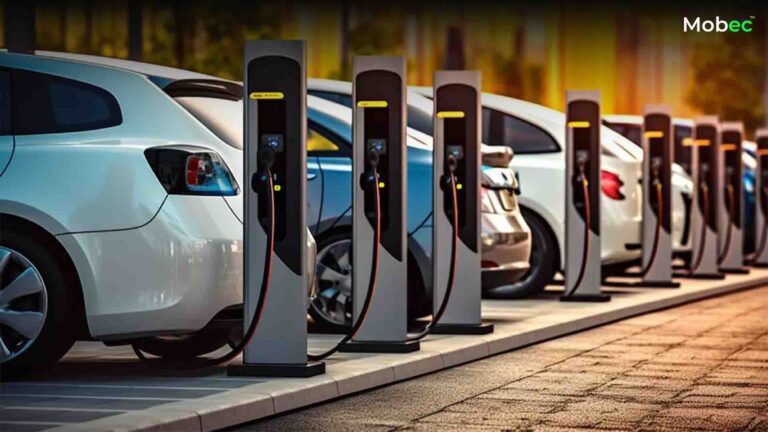As the global automotive industry continues to embrace the widespread adoption of electric vehicles (EVs) to mitigate the environmental impact of traditional combustion engine vehicles, the development of vehicle electric charging stations has become increasingly crucial. Vehicle electric charging stations play a pivotal role in supporting the growing demand for electric vehicles and promoting sustainable transportation practices. Understanding the significance of vehicle electric charging stations in catering to the expanding EV market is essential for both EV owners and charging infrastructure providers. This comprehensive exploration delves into the key aspects of vehicle electric charging stations, highlighting their importance, functionalities, and contributions to the development of a comprehensive and accessible charging infrastructure network that supports the diverse needs of electric vehicle owners and fosters the adoption of sustainable transportation practices on a global scale.
Catering to the Growing EV Market: The Role of Vehicle Electric Charging Stations

Catering to the growing EV market requires a comprehensive approach to the development, implementation, and management of vehicle electric charging stations that support the accessibility, reliability, and user-friendliness of charging infrastructure services. Vehicle electric charging stations cater to the diverse needs and preferences of electric vehicle owners by providing accessible and efficient charging services that promote the feasibility and convenience of electric vehicle ownership within local communities and global markets. The role of vehicle electric charging stations in catering to the growing EV market encompasses various aspects, including infrastructure planning, technological advancements, collaborative partnerships, and policy advocacy, that collectively contribute to the expansion and accessibility of charging infrastructure services and support the widespread adoption of electric vehicles within the global transportation landscape.
The key role of vehicle electric charging stations in catering to the growing EV market includes:

- Infrastructure Planning and Development: Vehicle electric charging stations contribute to the planning and development of charging infrastructure projects that support the accessibility, convenience, and feasibility of electric vehicle ownership within local communities and global markets. The integration of vehicle electric charging stations into comprehensive infrastructure planning initiatives enables stakeholders to assess market demand, identify strategic locations for charging stations, and evaluate the integration of charging infrastructure with existing transportation networks and sustainable mobility initiatives, fostering the development of a cohesive and accessible charging infrastructure network that supports the diverse needs of electric vehicle owners.
- Technological Advancements and Innovation: Vehicle electric charging stations drive technological advancements and innovation within the charging infrastructure industry, fostering the development of advanced charging technologies, smart charging management systems, and cloud-based monitoring platforms that optimize charging efficiency, promote energy conservation, and enhance the user experience for electric vehicle owners. The integration of technological advancements and innovation into the charging infrastructure network supports the growth of the electric vehicle market and promotes the adoption of sustainable transportation practices within local communities and global markets, positioning electric vehicles as integral components of a more sustainable, resilient, and interconnected transportation ecosystem.
- Collaborative Partnerships and Stakeholder Engagement: Vehicle electric charging stations foster collaborative partnerships and stakeholder engagement within the electric vehicle industry, encouraging the exchange of knowledge, resources, and expertise in the development, implementation, and management of charging infrastructure projects. Collaborative partnerships enable stakeholders to share best practices, leverage industry expertise, and foster a culture of knowledge sharing and resource integration that supports the growth of the electric vehicle market and promotes the adoption of sustainable transportation practices within local communities and global markets.
- Policy Advocacy and Regulatory Support: Vehicle electric charging stations advocate for policy initiatives and regulatory frameworks that promote the development and expansion of charging infrastructure projects, supporting the growth of the electric vehicle market and fostering the adoption of electric vehicles as viable and practical transportation alternatives. Policy advocacy and regulatory support enable stakeholders to address regulatory challenges, overcome legislative barriers, and advocate for policy reforms that facilitate the integration of charging infrastructure into the broader transportation network, positioning vehicle electric charging stations as advocates for sustainable transportation practices and environmental conservation within local communities and global markets.
By playing a pivotal role in infrastructure planning and development, driving technological advancements and innovation, fostering collaborative partnerships and stakeholder engagement, and advocating for policy initiatives and regulatory support, vehicle electric charging stations contribute to the growth and accessibility of charging infrastructure services and support the widespread adoption of electric vehicles within the global transportation landscape.
Promoting the Benefits of Electric Vehicles and Sustainable Transportation Practices

Vehicle electric charging stations promote the benefits of electric vehicles and sustainable transportation practices, encouraging consumers to embrace clean energy transportation solutions and prioritize the environmental and economic benefits of electric vehicle ownership. By providing accessible and reliable charging services, vehicle electric charging stations support the growth of the electric vehicle market and promote the adoption of sustainable transportation practices that prioritize energy efficiency, environmental conservation, and responsible transportation choices. The promotion of the benefits of electric vehicles and sustainable transportation practices by vehicle electric charging stations contributes to the development of a more inclusive and interconnected transportation ecosystem that supports the well-being of both present and future generations and fosters the adoption of clean energy transportation solutions within local communities and global markets.
The key benefits of electric vehicles and sustainable transportation practices promoted by vehicle electric charging stations include:
- Environmental Conservation and Pollution Reduction: Vehicle electric charging stations promote environmental conservation and pollution reduction by encouraging consumers to embrace electric vehicles as emission-free and energy-efficient transportation alternatives to traditional combustion engine vehicles. The promotion of environmental conservation and pollution reduction by vehicle electric charging stations supports the global efforts to mitigate climate change, reduce carbon emissions, and preserve natural resources for future generations, fostering a culture of environmental consciousness and energy efficiency within the global transportation industry.
- Energy Efficiency and Renewable Energy Integration: Vehicle electric charging stations promote energy efficiency and the integration of renewable energy sources, such as solar power, wind energy, and geothermal energy, into the charging infrastructure network, supporting the development of a more sustainable and environmentally friendly transportation ecosystem. The promotion of energy efficiency and renewable energy integration by vehicle electric charging stations encourages consumers to prioritize the utilization of clean energy sources and energy-efficient technologies that support the growth of the electric vehicle market and contribute to the reduction of carbon emissions and the preservation of natural resources for future generations.
- Economic Growth and Job Creation: Vehicle electric charging stations stimulate economic growth and job creation within the electric vehicle industry, creating employment opportunities for professionals in various sectors, including engineering, manufacturing, technology development, and sustainable energy management. The integration of vehicle electric charging stations into the broader charging infrastructure network fosters the creation of new job opportunities, the development of specialized skill sets, and the promotion of workforce development initiatives that support the growth of the electric vehicle market and promote the adoption of sustainable transportation practices within local communities and global markets.
- Community Development and Social Responsibility: Vehicle electric charging stations contribute to community development and social responsibility by fostering a culture of environmental consciousness, energy efficiency, and responsible transportation practices within local communities and global markets. The integration of vehicle electric charging stations into community development initiatives promotes the adoption of electric vehicles as practical and sustainable transportation alternatives for consumers, supporting the development of inclusive and accessible communities that prioritize the well-being of residents and the preservation of natural resources for future generations.
By promoting the benefits of electric vehicles and sustainable transportation practices, vehicle electric charging stations contribute to the advancement of a cleaner, greener, and more sustainable transportation ecosystem that supports the well-being of both present and future generations and fosters the adoption of clean energy transportation solutions within local communities and global markets.
Conclusion
Vehicle electric charging stations play a pivotal role in supporting the growing demand for electric vehicles and promoting sustainable transportation practices within local communities and global markets. By contributing to infrastructure planning and development, driving technological advancements and innovation, fostering collaborative partnerships and stakeholder engagement, advocating for policy initiatives and regulatory support, and promoting the benefits of electric vehicles and sustainable transportation practices, vehicle electric charging stations support the development of a comprehensive and accessible charging infrastructure network that caters to the diverse needs of electric vehicle owners and fosters the adoption of sustainable transportation practices within local communities and global markets. As we look ahead to the future of the electric vehicle industry and the ongoing development of charging infrastructure networks, we are presented with an opportunity to embrace a more sustainable and energy-efficient transportation ecosystem that is capable of meeting the diverse needs of a rapidly changing world and promoting the well-being of both present and future generations.
Frequently Asked Questions (FAQs)
-
What role do vehicle electric charging stations play in catering to the growing EV market?
1. Infrastructure Planning and Development: They contribute to planning and developing charging infrastructure projects, ensuring accessibility and feasibility.
2. Technological Advancements and Innovation: These stations drive technological advancements and innovation, fostering smart charging systems and enhancing user experience. -
How do vehicle electric charging stations contribute to collaborative partnerships and stakeholder engagement?
1. Collaborative Partnerships: They encourage the exchange of knowledge, resources, and expertise within the electric vehicle industry.
2. Stakeholder Engagement: These stations foster a culture of knowledge sharing and resource integration, supporting the growth of the electric vehicle market. -
What benefits do electric vehicles and sustainable transportation practices promoted by charging stations include?
1. Environmental Conservation and Pollution Reduction: Promotion of emission-free and energy-efficient transportation alternatives.
2. Energy Efficiency and Renewable Energy Integration: Encouragement of clean energy sources and sustainable technologies. -
How do vehicle electric charging stations contribute to economic growth and job creation?
1. Economic Growth: They stimulate economic growth within the electric vehicle industry.
2. Job Creation: These stations create employment opportunities in various sectors, including engineering and sustainable energy management. -
What role do vehicle electric charging stations play in community development and social responsibility?
1. Community Development: They contribute to community development by fostering environmental consciousness and responsible transportation practices.
2.Social Responsibility: These stations promote the adoption of sustainable transportation alternatives, supporting the well-being of residents.






















+ There are no comments
Add yours